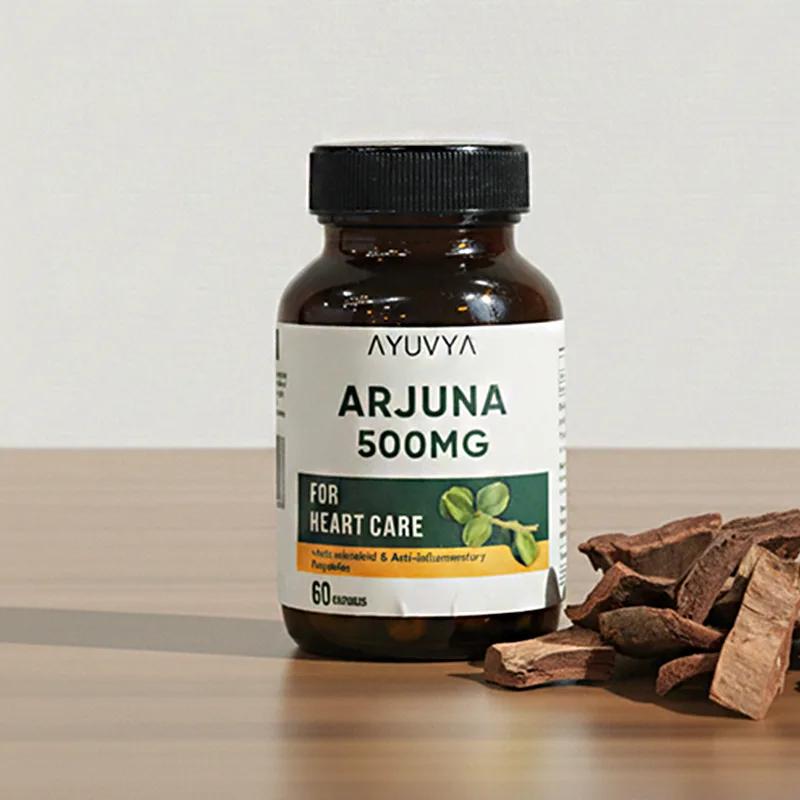Cholesterol levels: Ayurvedic Medicine for Cholesterol
Aug 30, 2024

Cholesterol levels are a type of lipid fat that helps your body to perform daily functioning. However, rising cholesterol levels can be a risk to your heart and other organs. It is the main cause of cardiovascular diseases in humans. Cholesterol structures are generally divided into two major types such as good cholesterol levels known as ‘High Density Lipoprotein’ and bad cholesterol levels such as ‘Low Density Lipoprotein’ but to manage these levels people often switch to the Ayurvedic approach rather than any allopathic medications.
Table of Contents:
- What are Cholesterol levels as per ayurveda?
- What are considered high cholesterol levels?
- Ayurvedic medicine to balance cholesterol levels.
- Some lifestyle changes for controlling cholesterol levels.
- Conclusion.
- FAQs.
What are Cholesterol levels as per ayurveda?
Ayurveda keeps a different outlook on cholesterol. In Ayurveda, cholesterol is the outcome of imbalanced doshas in one's body. Tissues like meda and adipose support various circulatory channels known as shrotas. The circulatory channels consist of two types, such as shukshma shrotas, responsible for subtle circulation, while sthula shrotas are responsible for heavy circulations such as arteries and veins transporting blood into and out from our heart. Cholesterol helps in lubricating these channels in our body.
So, a healthy cholesterol level is required to maintain good health, but when toxin levels increase in the bloodstream, it may affect the channels such as shrotas and make them clogged, causing high blood pressure, strokes, and high cholesterol levels, which is not at all good for health.
To maintain healthy cholesterol levels, you need to take care of your health and should be active to balance good health.
What are considered high cholesterol levels?
Generally, a person should have a cholesterol level less than 200 mg/dL. If your cholesterol level fluctuates and exceeds this threshold, it is considered high or bad cholesterol. Cholesterol levels can differ according to age groups. For people under 19 years, cholesterol levels categorized as borderline high range from 170-199 mg/dL for total cholesterol, 120-144 mg/dL for Non-HDL cholesterol, and 110-129 mg/dL for LDL cholesterol. Levels at or above these thresholds are considered high.
For people aged 20 and older, borderline high total cholesterol is between 200-239 mg/dL, while levels of 240 mg/dL and above are classified as high. To manage these cholesterol levels, you need to check your cholesterol levels regularly and take precautionary measures to address the issue.
Ayurvedic medicine to balance cholesterol levels:
There are several remedies you can follow to manage your cholesterol levels in your body some of them are mentioned below:
1. Garlic milk:
Take 6-8 cloves of garlic, peel and then crush them to make a paste. Boil half a liter of milk, add the garlic paste, and let it boil for 15-18 minutes. And your garlic milk is ready.
2. Amla juice:
Amla is rich in vitamin C and has antioxidant properties. It is a natural hypolipidaemic agent which helps in strengthening heart muscles and reduces cholesterol levels. You can consume fresh amla juice or take its powder along with water.
3. Healthy oils:
You can use olive oil or coconut oil instead of refined oils because these oils contain less fat and help in maintaining good heart health. That's why it is also known as cholesterol free oils.
4. Triphala churna:
Triphala churna consists of three elements: amalaki, haritaki, and bibhitaki, which together help in lowering cholesterol and reducing blockages in channels and make your body strong.
5. Guduchyadi churna:
You can use powder of guduchi and mustard. Mix both the ingredients along with takraishta. You can take this churna with buttermilk to improve heart health.
Some lifestyle changes for controlling cholesterol levels:
There are very simple lifestyle changes you can follow to manage your blood cholesterol levels. Some of the most common are mentioned below:
1. Healthy eating habits:
Eat foods that are rich in fiber, such as veggies, lentils, and fruits, because fiber helps in reducing LDL cholesterol. Also, replace saturated fats with unsaturated fats such as nuts and seeds, which help in tackling HDL cholesterol levels.
2. Exercise daily:
Do any physical activity of your choice, such as cycling, aerobics, and running. These activities help in managing blood circulation and also help in lowering LDL cholesterol and boosting HDL cholesterol levels.
3. Regular checkups:
Regular checkups for cholesterol can help you track your cholesterol levels and allow you to plan interventions for health.
4. Healthy weight:
Maintain a healthy weight because excessive weight can affect cholesterol levels in your body.
Conclusion
Maintaining a normal cholesterol level is important for cardiovascular health and overall body functioning. High cholesterol, primarily referred to as low-density lipoprotein (LDL) cholesterol, and low high-density lipoprotein (HDL) cholesterol levels can increase the risk of heart diseases such as heart attack, high blood pressure, and high blood cholesterol. It requires a healthy lifestyle to manage. Start by incorporating a fibrous diet into your meals, including leafy green vegetables, fruits, and nuts to manage good fat levels in your body. Exercise daily and opt for regular monitoring of cholesterol levels to keep track of your health. Avoid smoking and excessive alcohol consumption, and choose natural solutions and a good lifestyle to stay healthy.
Frequently Asked Questions
An LDL cholesterol level below 40 mg/dL is considered too low and may be associated with potential health risks.
Increasing soluble fiber intake, such as from oats and legumes, and engaging in regular physical activity can help lower cholesterol levels more quickly.
Foods high in saturated fats (like fatty cuts of meat, full-fat dairy) and trans fats (like processed snacks and fried foods) can raise cholesterol levels.
Canola oil and sunflower oil are both cholesterol-free and suitable for cooking.
Juices made from beets and pomegranates are believed to support healthy cholesterol levels.
Oats, barley, beans, lentils, almonds, and fatty fish (like salmon and mackerel) are known to help lower cholesterol levels.











